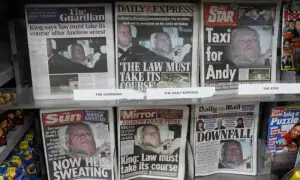Pakistan’s dealings with IMF remain strong, says Reza Baqir
3 min readState Bank of Pakistan Governor Reza Baqir has said that Pakistan’s engagement with the International Monetary Fund (IMF) "remains strong" in terms of both the finance ministry and the central bank.
In an interview on Bloomberg TV, Baqir said it comes as no surprise that in the current political environment, the "unpopular decisions" of raising fuel and electricity rates that the IMF is asking Pakistan to make “are proving difficult”.
However, he said "we are quite confident that quite soon we will able to put the delay behind us and announce the good news of completing the next tranche for the IMF," adding that the goal is to complete the work that is necessary to draw the remaining $3 billion from the IMF.
He said that the IMF is not just important for the funds but the signal it sends to other institutions, which “catalyses funding from other bilateral creditors as well as private capital markets. We are hopeful that with that positive messaging coming out, we will be able to mobilize funding from other sources aside from the IMF.”
In his message to investors, the SBP governer said that it is important for economic policymaking institutions to act on a "timely basis" to ensure that the goal of "financial stability remains."
Choosing not to comment on the recent political developments in Pakistan, Baqir stated: “For the central bank we feel that our financial markets are threatened by political instability, and we feel it is important to act and that is one of the key reasons behind the timing of our monetary policy decision last week.”
The Monetary Policy Committee (MPC) of the SBP, in an emergency meeting held last week, decided to increase the key policy rate by 250 basis points (bps) to 12.25% to address the risks to inflation and external stability.
The committee believed that this strong and proactive policy response was necessitated due to the deterioration in the outlook for inflation and an increase in risk to external stability since the last meeting.
Sharing the motivations behind the SBP policy rate hike, Baqir said that the MPC foreshadowed in its last meeting in March that it may need to act before the next scheduled meeting in late April due to "concerns on price stability and foreign exchange market."
The governor said that the factors which led to the MPC’s latest policy rate hike decision were high oil prices, high inflation rate and the devaluation of the Pak rupee against the US dollar.
“Oil prices have continued to remain high since March and in particular oil futures are about 10-12% higher for the next fiscal year. Second, the inflation outturn in March for Pakistan was a good 50-100 basis points higher than the previous month, as headline inflation was up around 12.7% and core inflation was up around 9%," he said.
"And finally, we have seen that the slide in the rupee has accelerated in the past few weeks, in part due to the political uncertainty, which was taking a toll on the markets.”
“Therefore, the MPC thought that it was important to prick the bubble of economic uncertainty,” said Baqir, adding that the decision has led to improved sentiment in the market.
The story was originally published in Business Recorder on April 11, 2022.
For the latest news, follow us on Twitter @Aaj_Urdu. We are also on Facebook, Instagram and YouTube.

























Comments are closed on this story.